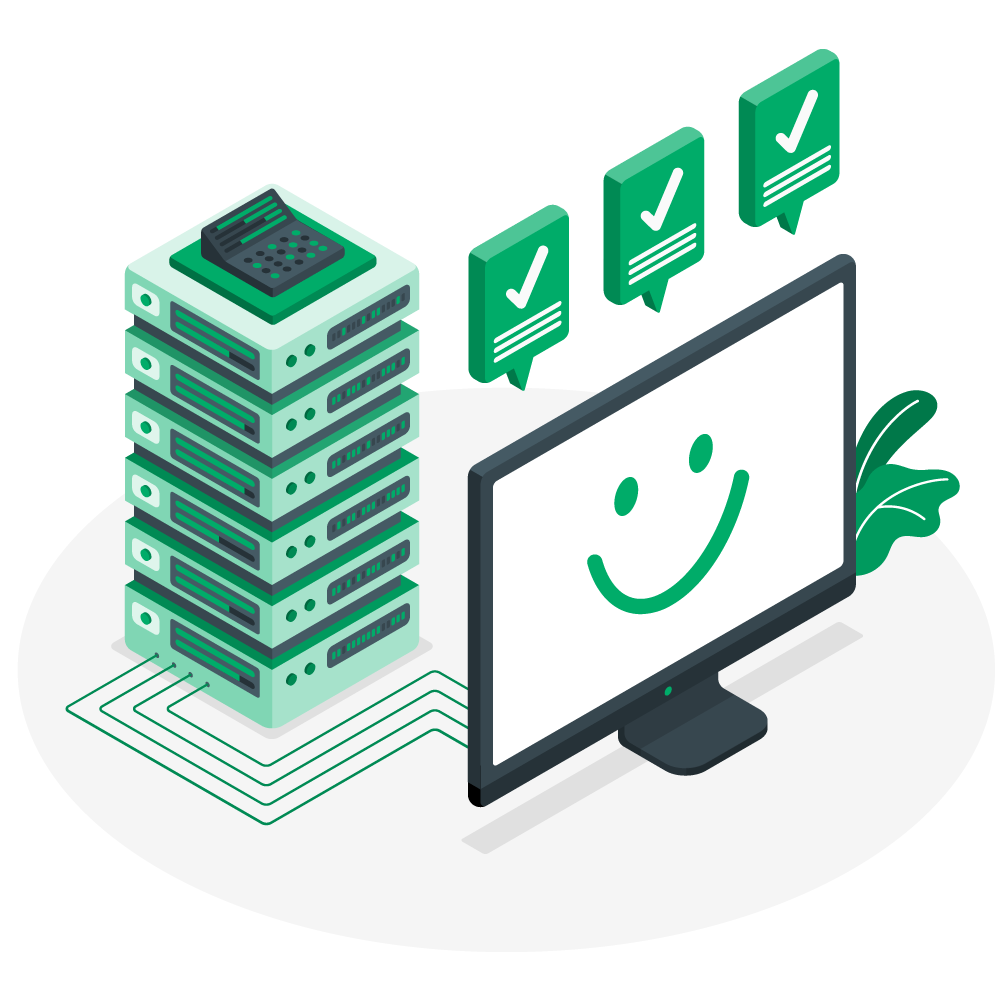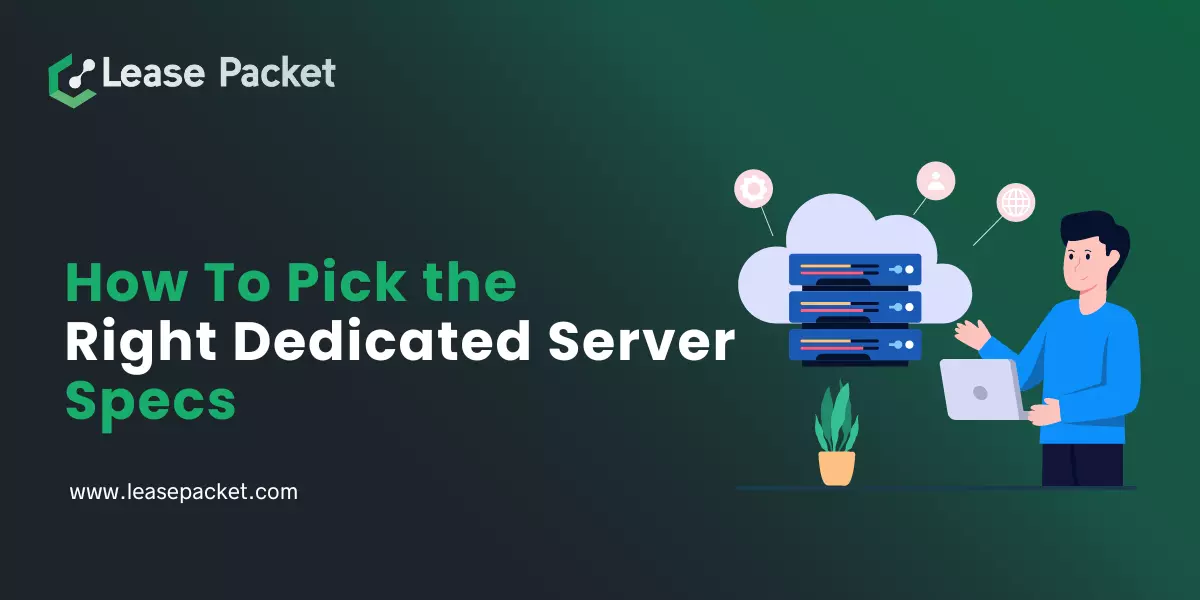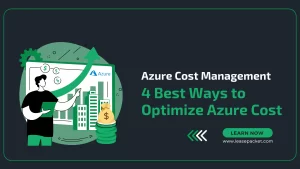Picking the right dedicated server specs can sometimes be a tough task for both beginners and those with experience. The amount of hardware and networking choices often leaves users in confusion to identify the server specifications that align with the unique needs of their projects.
Therefore, when making decisions about server specifications, many users find themselves facing common queries: How much RAM is necessary? Is 4TB of storage sufficient? Do I require unmetered bandwidth?
This article aims to address these questions comprehensively and guide you in choosing the optimal dedicated server specifications for your projects. Continue reading to gain insights on how to make informed decisions about your ideal server configuration.
Table of Contents
What Is a Dedicated Server?
A dedicated server is a type of server where an entire physical server is exclusively allocated to a single user or organization.
The key distinction between dedicated and shared servers lies in the fact that a dedicated server provides you with exclusive access to the server’s computing resources. Unlike shared servers, there are no other users, and you have significant control over the server specifications.
When you opt for a dedicated server, you have the flexibility to select its hardware components and the software installed on it. With root access to your dedicated server, you can configure it to handle the anticipated number of visitors and user requests.
Furthermore, dedicated servers offer enhanced security compared to other server solutions. This heightened security is attributed to the tight control you have over access to the server. You can avoid concerns about vulnerabilities created by other server tenants that could be exploited by hackers.
Key Components of a Dedicated Server
The fundamental elements of a dedicated server encompass:
Hardware & OS:
Dedicated servers consist of tangible hardware components, including a central processing unit (CPU), memory (RAM), storage drives (HDD or SSD), and network interfaces. The performance of the server is influenced by the quality and specifications of these components. An operating system (OS) is installed on the server to manage hardware resources and support applications. Popular choices include Linux distributions (such as CentOS, Ubuntu, or Debian) and Windows Server editions.
Control Panel:
Server administrators utilize a control panel to manage dedicated servers. This software component provides a graphical interface for routine server management and optimization tasks, including server configuration, software installation, and resource monitoring. Common control panels include cPanel, Plesk, and DirectAdmin.
Remote Management Tools:
Dedicated servers often come equipped with remote management tools, enabling administrators to control the server from a distance. These tools may include remote desktop access (for Windows servers) or SSH (for Linux servers).
Network Connectivity:
Dedicated servers connect to the internet through high-speed network connections, featuring dedicated IP addresses and ample bandwidth to handle incoming and outgoing traffic.
Security Features:
Implementing security measures is crucial to safeguard the server and the hosted data. At a minimum, it is advisable to request the provider to protect the dedicated server with firewalls, intrusion detection and prevention systems (IDPS), antivirus and antimalware software, and secure access controls.
Scalability Options:
While not technically part of dedicated servers, scalability options are vital for prolonged server usage. Dedicated server plans should incorporate scalability features, allowing users to adjust server resources (CPU, RAM, storage) based on changing requirements.
Physical Environment:
Dedicated servers are housed within a controlled data center environment to ensure optimal operating conditions, including temperature, humidity, and power supply. Data centers typically feature redundant power and cooling systems to guarantee the server’s high availability.
Support and Management:
Managed dedicated server plans offer additional support from the server provider. This may include assistance with server setup, maintenance, security updates, and troubleshooting.
Dedicated Server Use Cases
Dedicated servers are a great choice for a variety of industries and situations where organizations or individuals need exclusive access to server resources, improved performance, and more control over their server environment.
Here are some common uses of dedicated server:
Website Hosting:
Dedicated servers are perfect for hosting websites with high traffic, content-heavy platforms, and user-facing applications that demand consistent performance and reliability.
Gaming Servers:
To host multiplayer online games, game servers, and virtual reality environments, a dedicated server providing low latency and continuous high performance is necessary.
eCommerce:
For hosting online stores that handle numerous transactions and customer data, requiring secure payment processing, a robust and highly secure dedicated server is essential.
Application Hosting:
Hosting resource-intensive applications, databases, and software solutions that demand dedicated processing power and memory calls for a dedicated server with a powerful configuration.
Virtual Private Servers (VPS):
To offer isolated virtual environments with dedicated resources to clients in need of VPS solutions, a high-spec dedicated server is required.
Development and Testing:
Dedicated servers are an excellent choice for creating custom software development, testing, and staging environments before deploying to production.
Big Data and Analytics:
Hosting data processing, analytics, and machine learning applications requires substantial computational resources, which dedicated servers can provide.
Advantages of Dedicated Server
Users prefer dedicated server for the following reasons:
Enhanced Performance:
Applications hosted on a dedicated server benefit from reliable server resources, resulting in optimal performance, decreased latency, and faster data processing.
Customization and Control:
Dedicated servers provide complete control over server configuration, the choice of operating system, software stack, and security settings. This allows users to create tailor-made environments that precisely meet the requirements of their specific projects.
Security and Isolation:
Dedicated servers enhance security by isolating user data and applications from others, reducing the risk of security breaches commonly associated with shared server environments.
Scalability:
Many dedicated server plans offer scalability options, enabling users to easily adjust server resources to meet changing demands by upgrading or downgrading as needed.
Reliability and Uptime:
The independent resources supporting applications on dedicated servers contribute to greater reliability. This translates to higher uptime and a reduced risk of server crashes, providing a more stable server environment.
Disadvantages of Dedicated Server
Dedicated servers often present a unique set of challenges, including:
Cost:
Dedicated server is typically more expensive than shared server or virtual private servers (VPS) because it provides exclusive resources and greater control over server configurations.
Management Complexity:
Managing a dedicated server demands extensive technical expertise. You need the ability to handle tasks such as server setup, security updates, software installation, and troubleshooting issues.
Responsibility for Server Maintenance:
Users are responsible for maintaining the server’s hardware and software components. This includes addressing hardware failures, updating the operating system, and applying software security patches.
Limited Scalability:
While some dedicated server plans offer scalability options, making upgrades or downgrades to resources may involve downtime and manual configuration.
Trickier Resource Allocation & Management:
Dedicated servers offer fixed resources, meaning that if your application’s resource demands fluctuate, you might either underutilize or overload the server.
Comparison of Dedicated Server With Other Server Solutions
Now that you have a clear understanding of the advantages and disadvantages of a dedicated server, it’s time to compare it with other popular server solutions to help you make an informed decision for server your business apps and websites.
Dedicated Server vs. Shared Server:
- Functionality: Dedicated server outperforms shared server due to exclusive resources, leading to quicker loading times and stable server performance.
- Security: Dedicated servers offer a higher level of protection through server isolation and customized security measures compared to shared server, which shares a server among multiple websites.
- Server Control: Dedicated server users have complete control over server configurations, while shared server provides limited control as settings are shared among all websites on the server.
- Costs: Dedicated server is generally more expensive than shared server due to exclusive access to server resources.
Dedicated Server vs. VPS Server:
- Functionality: Dedicated server often performs better than VPS as it allocates the entire server’s resources exclusively for business use.
- Security: Dedicated servers provide tighter security than VPS servers due to total server isolation and the ability to apply custom security measures.
- Administration: Both dedicated and VPS servers offer configuration flexibility and control, with dedicated servers providing even more control as the entire server is devoted to a single user.
- Costs: Dedicated servers, offering exclusive access to a whole server’s resources, are often more expensive than VPS servers.
Dedicated Server vs. Cloud server:
- Functionality: While both dedicated and cloud servers deliver excellent performance, cloud servers often offer better scalability and flexibility in handling traffic variations and resource needs.
- Security: Depending on the provider’s architecture and security procedures, both dedicated server and cloud server may offer excellent security, with dedicated servers providing greater control over security options.
- Administration: Dedicated server provides greater control over hardware and software configurations compared to cloud server, which depends on the provider’s infrastructure and may have constraints.
- Costs: Depending on the provider and specific requirements, a dedicated server may be more expensive than some cloud server options. Cloud server fees can fluctuate based on resource utilization and may be more cost-effective for enterprises with changing demands.
How To Pick the Right Dedicated Server Specs
One of the major advantages of using a dedicated server is the ability to customize your server’s hardware configuration.
However, selecting the right specifications for your dedicated server can be challenging if you’re unsure about the computing power needed to host your web services. Additionally, effective server administration and security knowledge are essential to keeping dedicated servers operational and secure.
If you lack expertise in server management and architecture maintenance, it is advisable to consider partnering with a dedicated server provider. There are several excellent providers in the market, and choosing the right one for your needs requires thorough research and discussion. Here are seven guidelines to consider in your evaluation process:
Server Hardware Requirements:
- CPU: Ensure that the dedicated server provider has the processing capacity to meet your website or application’s current and future demands.
- RAM: Consider the available memory options to see if they can efficiently sustain the workload of your website or application.
- Storage: Check the offered storage options to verify they fit your capacity and performance needs.
Remember that server hardware is crucial to supporting your business processes. Let’s delve into these components and understand how they contribute to your server’s performance.
CPU:
When choosing a CPU for your dedicated server, consider the number of cores and the processor’s frequency. Both Intel and AMD make excellent processors, so choose the one that best fits your budget. Generally, a CPU with a higher core count and frequency delivers better performance.
RAM:
In server operations, having more RAM results in faster server performance. If your web service receives a lot of traffic, consider renting a dedicated server with at least 16 or 32GB of RAM. You can always upgrade if needed, as the cost of RAM has significantly decreased over the years.
Storage:
When selecting a dedicated server, determine the storage type and space needed. Classic hard disk drives (HDD) are cost-effective with large storage but have slower speeds. Solid-state drives (SSDs) are faster but pricier. You can also combine both for optimal performance.
When choosing these components, consider future requirements. Opt for a scalable server solution that meets current needs and can be easily upgraded for future resource demands.
Uptime and Network Performance:
In considering uptime and network performance, it’s important to keep the following three factors in mind.
Bandwidth: Check the server provider’s bandwidth limits to ensure they can handle the total traffic demands of your website and application (both upstream and downstream).
Uptime: Look for a dedicated server provider with a high uptime guarantee, reflecting the reliability of their servers and network infrastructure.
Delay/Lag: Consider the server provider’s data center location, as it affects the response lag experienced by your users. Aim for a data center that is as close to your main audience as possible to eliminate server-side delays and ensure prompt responses
Scalability and Pricing:
When it comes to scalability and pricing, consider the following factors.
- Pricing: Compare plans from different dedicated server providers and choose one that fits your budget while meeting your performance expectations.
- Hidden Payments & Fees: Thoroughly review the contract and SLA terms to avoid unexpected expenses and obligations, such as setup fees or cancellation payments.
- Scalability: Assess the ease of upgrading server resources (RAM, CPU, and storage), as this becomes crucial as your website grows. Choose a provider that can meet your future demands.
Security Features:
Security is a fundamental consideration when working with any server provider. When checking a provider’s security capabilities, consider the following points.
- Server Security: Examine the provider’s security measures, including firewalls, DDoS protection, intrusion detection systems (IDS), and user control policies.
- Disaster Recovery and Backup: Choose a dedicated server service that offers frequent backups and a robust disaster recovery plan to minimize downtime after any disaster.
Customer Service:
Customer service is a critical element in selecting the right server provider. In this context, consider the following factors.
- Availability: Choose a server with 24-hour customer assistance for both technical and non-technical issues.
- Channels: Ensure the provider offers customer support through various channels, such as email, phone, and live chat.
- Troubleshooting Expertise: Evaluate the support team’s technical skills and responsiveness in resolving server-related issues.
Bandwidth:
For small websites, a dedicated server plan with 10-100GB bandwidth may suffice. However, for video streaming services, online education platforms, or large eCommerce sites, opt for an unmetered dedicated server due to the significant space video files occupy and the rapid consumption of a metered plan.
Server Locations:
Choose a server location closest to your target audience. The proximity of your users to the server’s physical location enhances connection and data transfer rates. If users are far from your server, they may experience site latency and slower website loading speeds.
Dedicated Server Management Tasks
Effective server management is crucial to ensuring that the chosen server specifications consistently provide the expected benefits for your infrastructure. While specific server management tasks may vary based on the server specifications and usage, the following four tasks are universally applicable to every server.
1. Keep Server Software Up To Date:
Regularly update essential software to maintain optimal performance, security, and stability. Enable automated updates when possible to expedite the process and minimize the risk of vulnerabilities resulting from delayed or missed updates.
2. Establish Security Measures:
Server security plays a pivotal role in sustaining ongoing server operations. It is strongly recommended to keep firewalls, intrusion detection systems (IDS), and other security components up to date and properly configured. Additionally, enforce robust password requirements and employ encryption for critical data to mitigate the risk of unauthorized access.
3. Take Frequent Backups:
Implement a backup plan that includes regular automatic backups of your server’s data and configuration settings. This ensures the availability of a recent backup archive that can be used to recover server data and settings in the event of a disaster. Keep backups offsite or at a different location to safeguard against data center catastrophes.
4. Keep an Eye on Your Server’s Performance:
Monitor resource utilization using server monitoring tools to identify performance bottlenecks or concerns. Set up notifications for significant performance drops or unusual activities to facilitate immediate corrective action.
Conclusion
Choosing the right dedicated server specs can be a bit tricky, especially for those new to managing servers. The positive aspect of server specs is that you have the flexibility to select the ideal combination of CPU, RAM, storage, and bandwidth that perfectly suits your hosted applications.

























